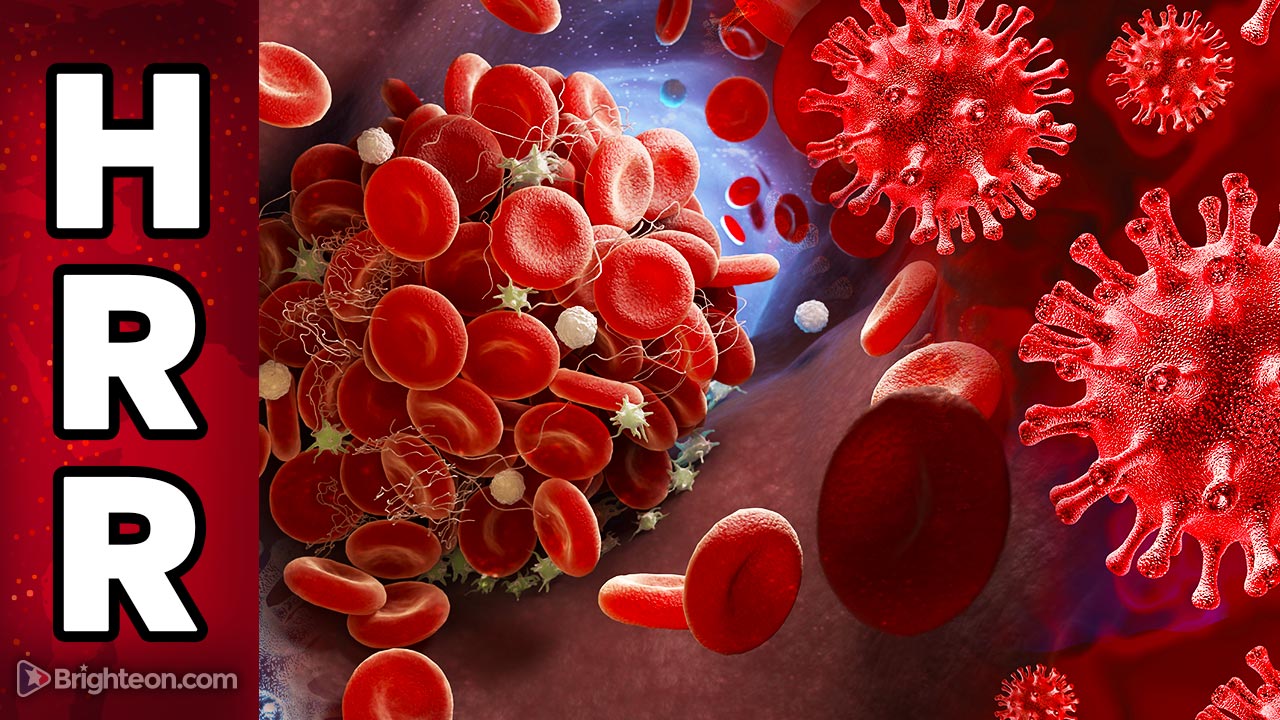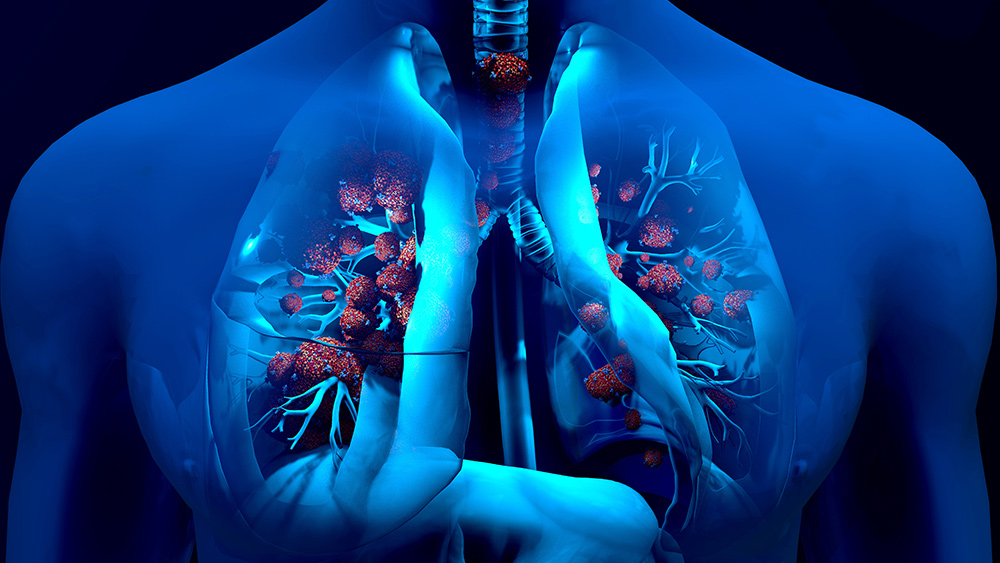Regular consumption of tea found to reduce risk of dementia and improve cognitive function
01/16/2023 / By Zoey Sky

Dementia is characterized by symptoms like memory loss and impaired judgment. Once considered a disease primarily affecting the elderly, many people under the age of 65 are now getting diagnosed with dementia.
Fortunately, a study has found that there’s an easy way to improve cognitive function.
According to researchers, consuming tea can help inhibit or slow down the aging of the brain and improve cognitive function. Details of the study were published in the journal Translational Psychiatry.
Tea consumption and disease prevention
A team that includes neurology researchers from Fudan University-affiliated Huashan Hospital and the Department of Neurology of Qingdao University-affiliated Qingdao Municipal Hospital conducted a survey in the U.K. from 2006 to 2010.
The results of the survey revealed that people who consumed tea drinks had a 16 percent lower overall risk of dementia than non-tea drinkers. (Related: Study: Drinking black tea helps increase longevity.)
During that four-year period, the researchers selected 377,592 volunteers from 22 regions in the United Kingdom. The participants had an average age of 58.49 and 54.3 percent were women.
The scientists divided the study participants into six groups:
- Those who didn’t drink tea at all.
- Those who drank only one to two cups of tea per day.
- Those who drank three to four cups of tea per day.
- Those who drank five to six cups of tea per day.
- Those who drank seven to eight cups of tea per day.
- Those who drank nine or more cups of tea per day.
Data from proportional hazard regression models indicated a significant link between tea consumption and reduced risk of dementia.
Specifically, the volunteers who consumed one to two cups of tea every day had their risk of dementia reduced by 17.7 percent. Those who drank three to four cups of tea reduced dementia risk by 20.8 percent and those who consumed five to six experienced a 19.7 percent risk reduction.
The researchers added that among those who drank more than six cups per day, the risk of dementia was no different than that of non-tea drinkers.
Further analysis into dementia types revealed that compared with the volunteers who did not drink tea at all, the people who consumed one to four cups a day had a 16.3 to 19.1 percent lower risk of developing Alzheimer’s disease. However, there was no significant difference after consuming over five cups of tea a day.
In an analysis concerning vascular dementia, drinking one to six cups of tea daily was found to reduce the incidence rate by 25 to 29.2 percent.
The scientists followed the volunteers for more than nine years and recorded a total of 5,122 cases of dementia. According to the researchers, tea consumption has been associated with protective benefits against several diseases.
Tea leaves contain different biomacromolecules, the most notable among them being polyphenols in green tea. Polyphenols are linked to many cellular antioxidant and nerve rescue activities that prevent memory deficits.
Biomacromolecules also have anti-inflammatory effects, which can help prevent cognitive decline.
Other superfoods that can help improve cognitive health
Experts believe dementia and Alzheimer’s disease are caused by a combination of genetic, environmental and lifestyle factors such as diet and nutrition. Health issues like diabetes, high blood pressure, heart disease and obesity may also contribute to cognitive decline and these issues are usually affected by your diet.
Following a healthy diet and eating a wide variety of nutritious foods is shown to help reduce the risk of dementia and Alzheimer’s disease as you age.
Aside from tea, these superfoods can help prevent cognitive decline and help you stay healthy as you age:
Berries
Fruits like blackberries, blueberries, cherries and raspberries are rich in anthocyanin. This flavonoid helps halt the progression of brain damage caused by harmful free radicals.
These fruits and other berries are also great sources of beneficial antioxidants and vitamins that can help reduce inflammation and improve brain health.
Cruciferous vegetables
Cruciferous vegetables like broccoli, Brussels sprouts and cauliflower are full of B vitamins and carotenoids that are found to reduce levels of homocysteine, an amino acid linked to cognitive decline, brain atrophy and dementia.
You can eat more cruciferous vegetables by sauteing them in garlic and olive oil or using these superfoods to make soups or smoothies.
Leafy greens
Leafy greens such as collard greens, kale, spinach and Swiss chard are rich in essential B vitamins like folate and vitamin B9 that can help reduce depression. These nutrients can also help boost cognitive health.
Add more leafy greens to your diet by eating salads and adding them to chilis, soups and stews. You can also puree leafy greens and add them to hummus, sauces and pesto.
Nuts
Nuts like almonds, cashews, peanuts, pecans and walnuts are full of healthy fats, magnesium, vitamin E and B vitamins that can all help boost cognitive health and stave off signs of dementia.
According to a study, women older than 70 who eat at least five servings of nuts per week are shown to have significantly better brain health compared to other women in the same age group who don’t consume nuts.
Results from another study revealed that the anti-inflammatory phytochemicals in English walnuts can help reduce inflammation of brain cells to maintain optimal brain health throughout the aging process.
Omega-3s
Foods like flaxseed, olive oil and fatty fish like mackerel, salmon and tuna are full of beneficial omega-3 fatty acids with DHA that boost brain health.
Many studies have shown that omega-3s are effective at fighting and preventing dementia. Experts suggest taking 200 mg of DHA daily to achieve good brain health.
However, the average daily intake of DHA in the U.S. is estimated to be only about 80 mg. Boost your brain health by consuming foods rich in omega-3s or taking quality DHA supplements.
Visit FoodIsMedicine.com for more articles about superfoods with many health benefits.
Watch the video below to know more about the 10 health benefits of black tea.
This video is from the Frozen In Time channel on Brighteon.com.
More related stories:
Mushrooms boost brain health: Eat them twice a week to prevent dementia.
Should eggs be prescribed for diabetes and dementia?
Cancer, dementia, heart disease: Three more reasons to maintain excellent oral health.
Sources include:
Submit a correction >>
Tagged Under:
aging secrets, alternative medicine, Alzheimer's, anti-aging, brain function, brain health, cognitive function, cognitive health, dementia, food cures, food is medicine, food science, natural cures, natural health, natural medicine, organics, phytonutrients, prevention, research, tea
This article may contain statements that reflect the opinion of the author
RECENT NEWS & ARTICLES
COPYRIGHT © 2017 PREVENTION NEWS




















